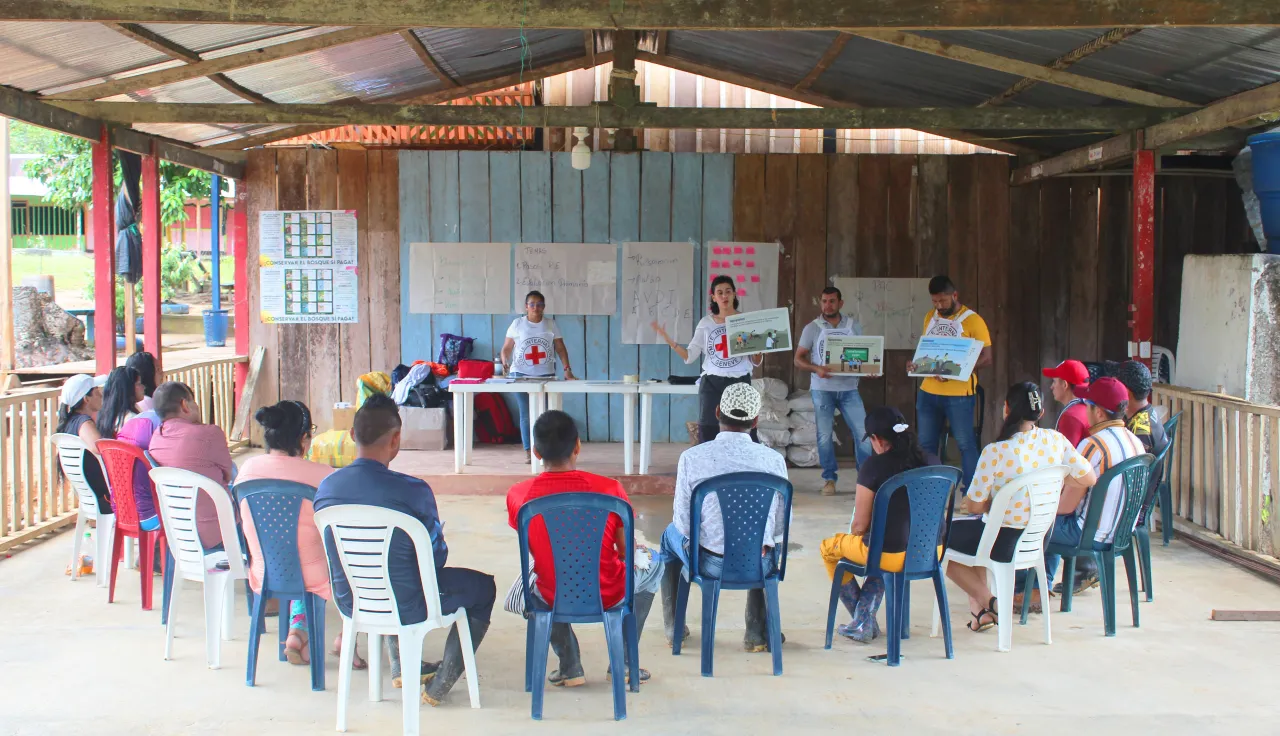Calls to action from ICRC to Colombia in 2023

Recommendations on the country's humanitarian situation.
The reality of Colombians living in the midst of armed conflicts and violence continues to be complex. These are our calls to action for the year 2023 regarding the issues that concern us the most in Colombia.
Armed conflicts
- Armed actors must give impartial humanitarian organizations access to their territories so that they can alleviate the suffering of the civilian population and mitigate the humanitarian consequences of the armed conflicts and violence. They must also respect these organizations' standards and ways of working, which are based on the principles of neutrality, impartiality and independence.
- In any dialogue or negotiations between the Colombian state and armed groups, it is important that the parties consider commitments that entail greater respect for IHL in order to reduce the impact of the armed conflicts and determine possible post conflict obligations. IHL should not be used for political purposes or related to political decisions so that its capacity to protect the lives of people affected by armed conflict is not diminished.
- Respect for IHL means everything for people affected by armed conflict. When the rules of IHL are followed, human suffering is reduced. That is why we insist on this point, so that parties to conflicts protect the lives and dignity of those who are not or are no longer taking part in hostilities and treat them with humanity at all times.
- We call on armed actors to assess and reduce the humanitarian consequences generated by the presence, use and abandonment of explosive weapons and their direct and indirect effects on the civilian population.
- Children and teenagers must not be involved in any way with armed actors. In this respect, it is important that state and non-state armed actors uphold the protection conferred on them by IHL and other humanitarian norms. Likewise, it is crucial that the Colombian state develop areas where people are protected and promote opportunities in rural and urban areas to hinder the recruitment, use and participation of children in hostilities.
- We insist on the importance of the state's strengthening its institutional capacity to provide a complete response to those affected by the armed conflicts.
Missing people
- To prevent people from going missing, we urge armed actors to take the necessary measures, such as to enable family members to remain in contact with their relatives and to manage dead bodies properly. Likewise, we request that they hand over all the information they have and that might be useful to clarifying the fate and whereabouts of missing people to the institutions tasked with searching for them.
- We remind public prosecutors, judges and the authorities in general that the Urgent Search Mechanism is an indispensable tool that must be activated in an immediate and suitable manner in missing person cases.
- We ask the Colombian state and society to continue supporting the Unit for the Search for Missing Persons and its important humanitarian work. This applies as much to economic resources as to the interinstitutional support and access to information it needs to carry out its work.
Health care
- We urge armed actors to cease their attacks on health workers, facilities and vehicles. Their protection is especially important in areas where health care is most fragile, such as in the areas worst hit by the armed conflicts and violence.
- We call on civilians to respect, protect and recognize the fundamental role played by medical personnel in society. Likewise, we remind everyone of the importance of allowing these people to carry out their work in whatever circumstances and without any arbitrary restrictions.
People deprived of their liberty
- We appreciate the Colombian state's endeavours to reform and humanize the penal and prison system. A particularly welcome development was the adoption of draft law no. 093 in 2019, which incorporated our recommendations and established community service for detained women heads of household as an alternative form of punishment.
- Given that the state, despite their endeavours, has not managed to fully meet the needs of people deprived of their liberty, and based on the principle of the rational and exceptional use of prison, it is necessary to rethink penal policy to ensure better access to legal aid, respect for procedural deadlines and alternatives to detention, which should include a differentiated approach.
- We recognize the efforts of the state to improve health care in places of detention. However, recognizing that health care in prison is a matter for the public sector, we recommend that it be managed by one sole institution, and consequently that the Ministry of Health and Social Protection be more involved.
More about 'Humanitarian Challenges 2023'
- Civilian population trapped in fear and anxiety
- "The importance of humanitarian action" Lorenzo Caraffi
- The constant threat of explosive hazards
- Unending uncertainty
- Health in the midst of conflict
- Overcrowding in temporary detention centres getting worse
- Releases: A reflection of our role as neutral intermediary
- Colombia: Stories from the field



